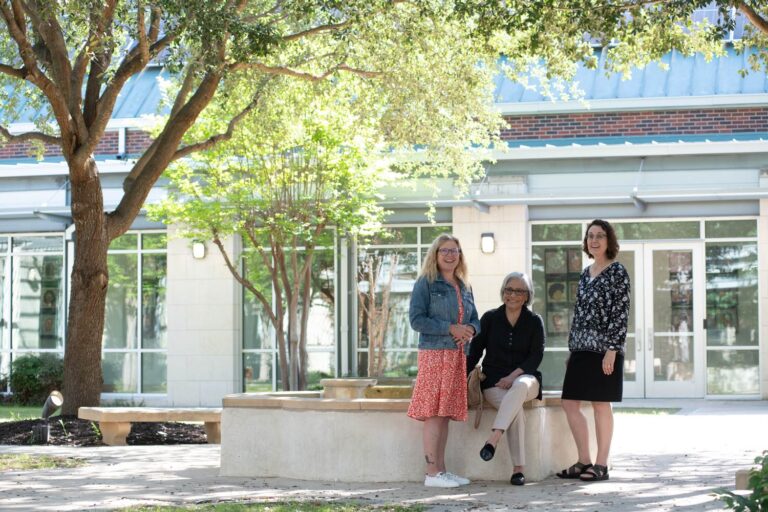Master of Divinity
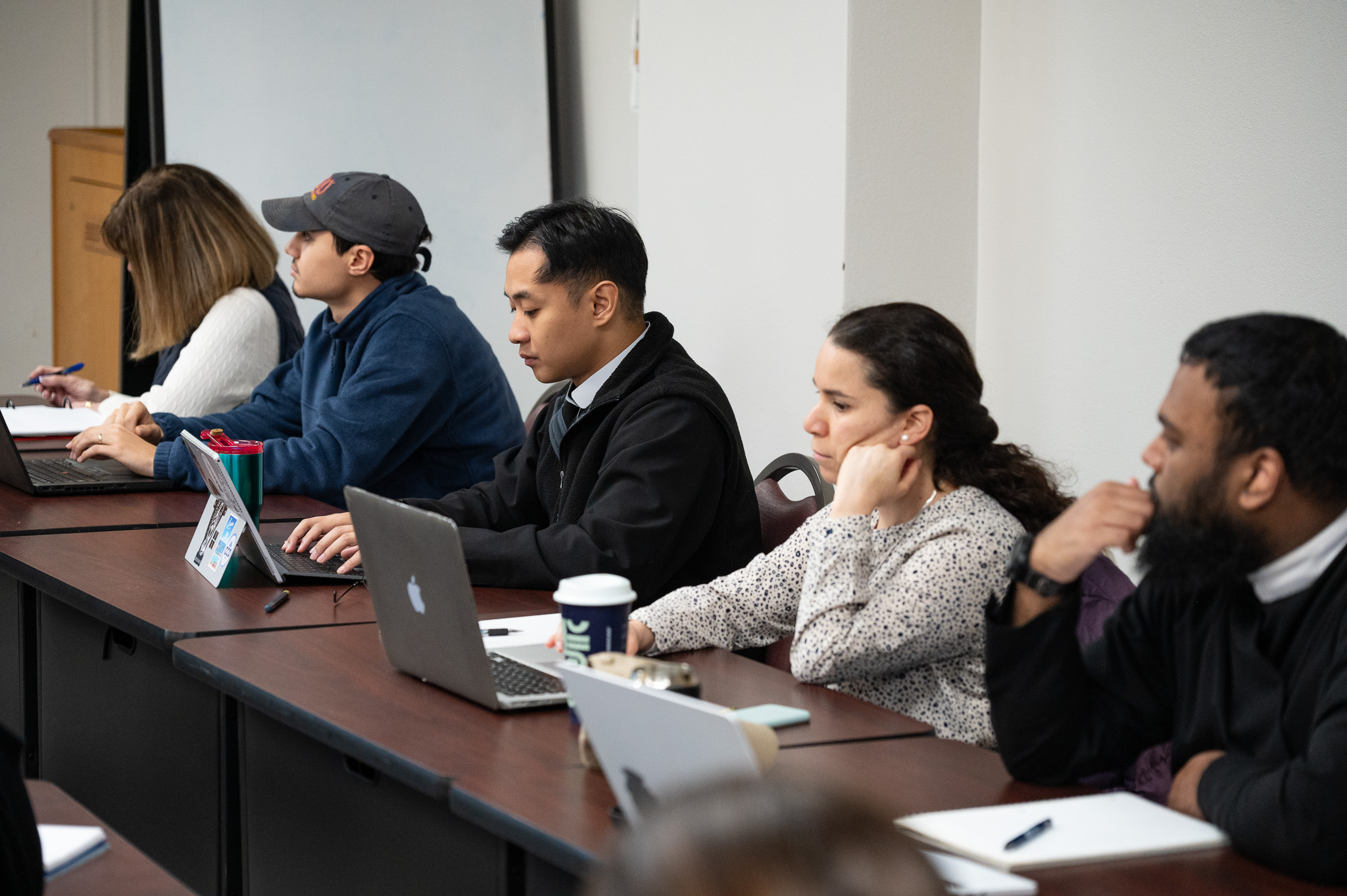
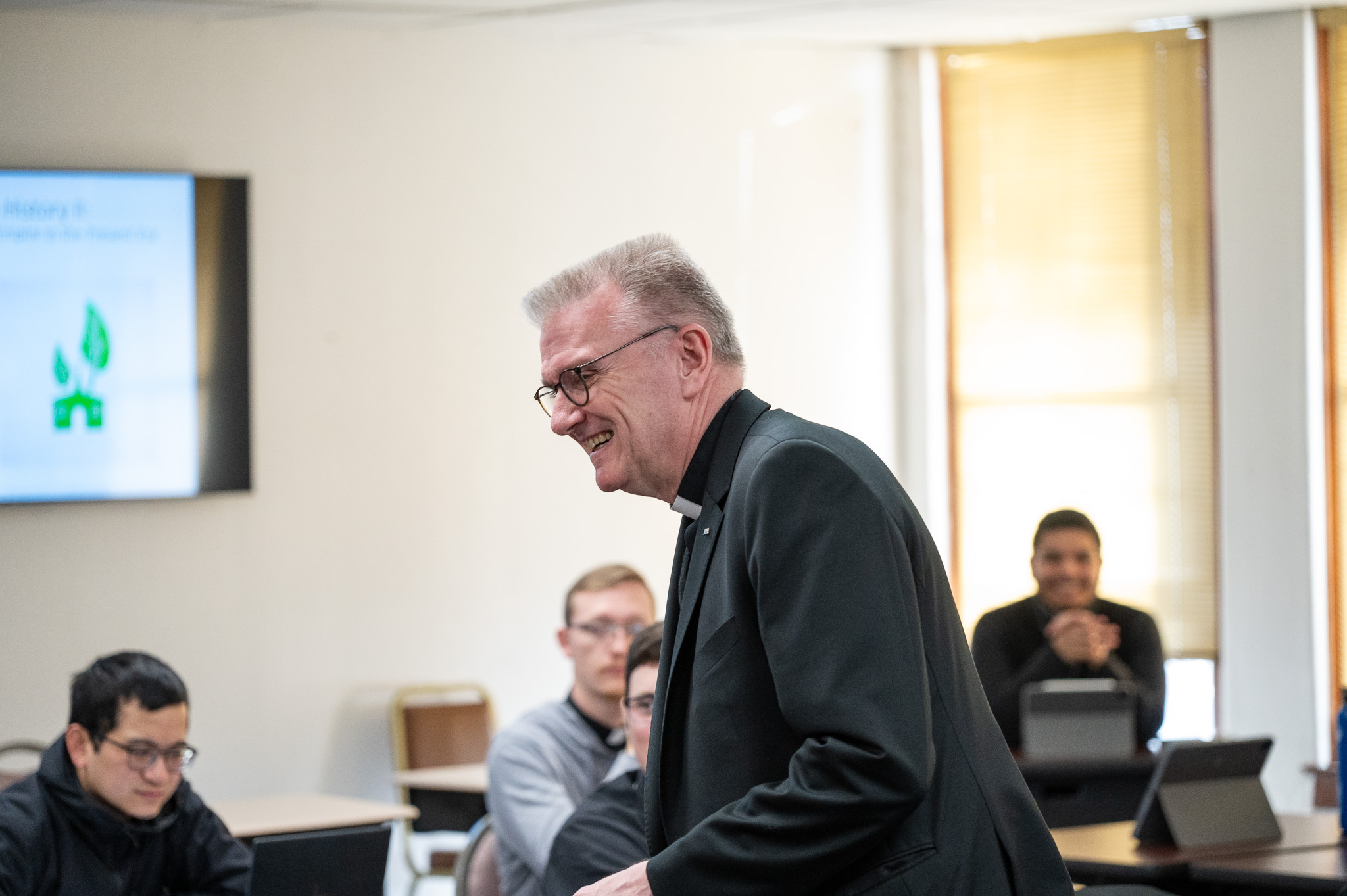
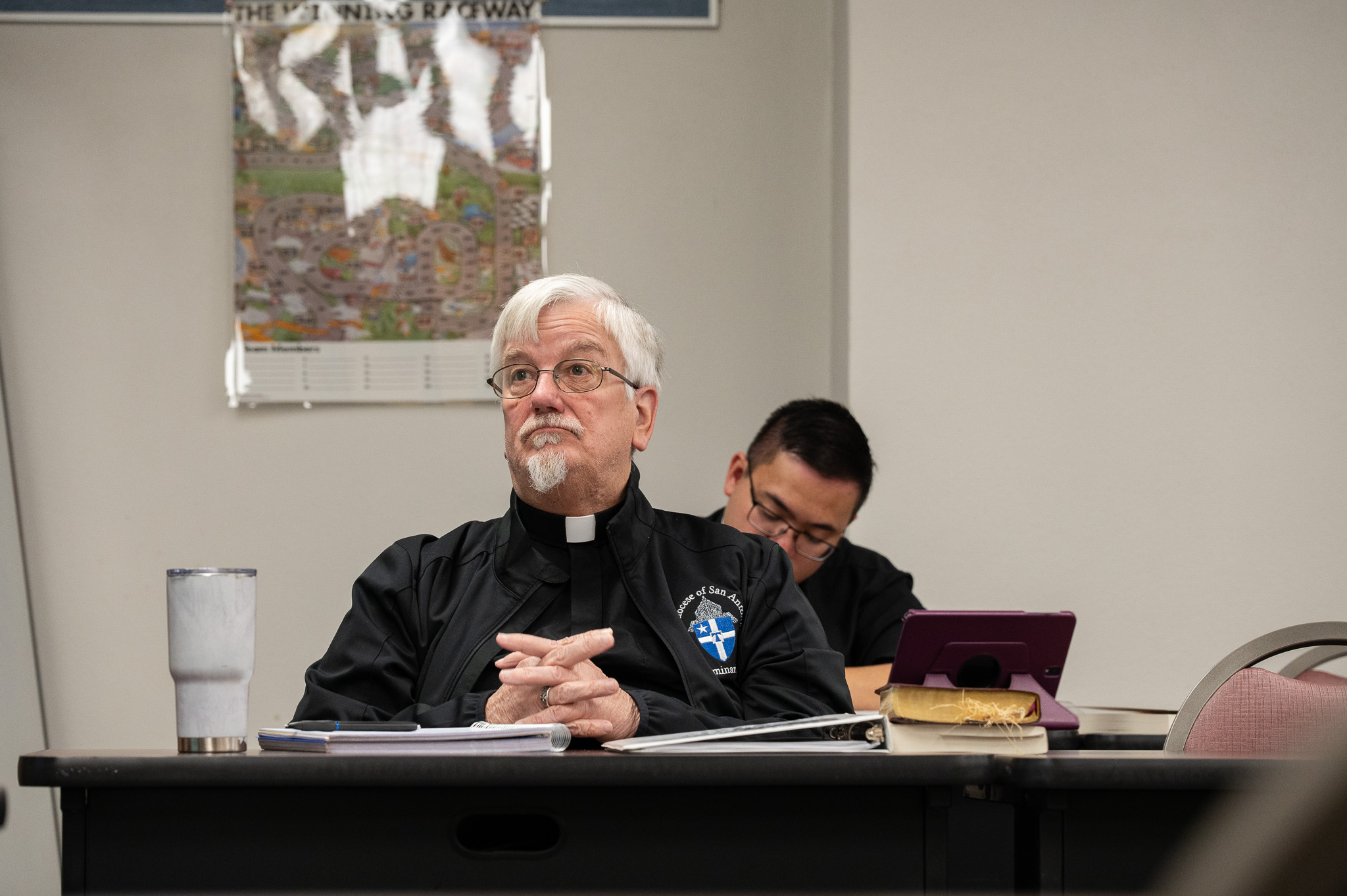

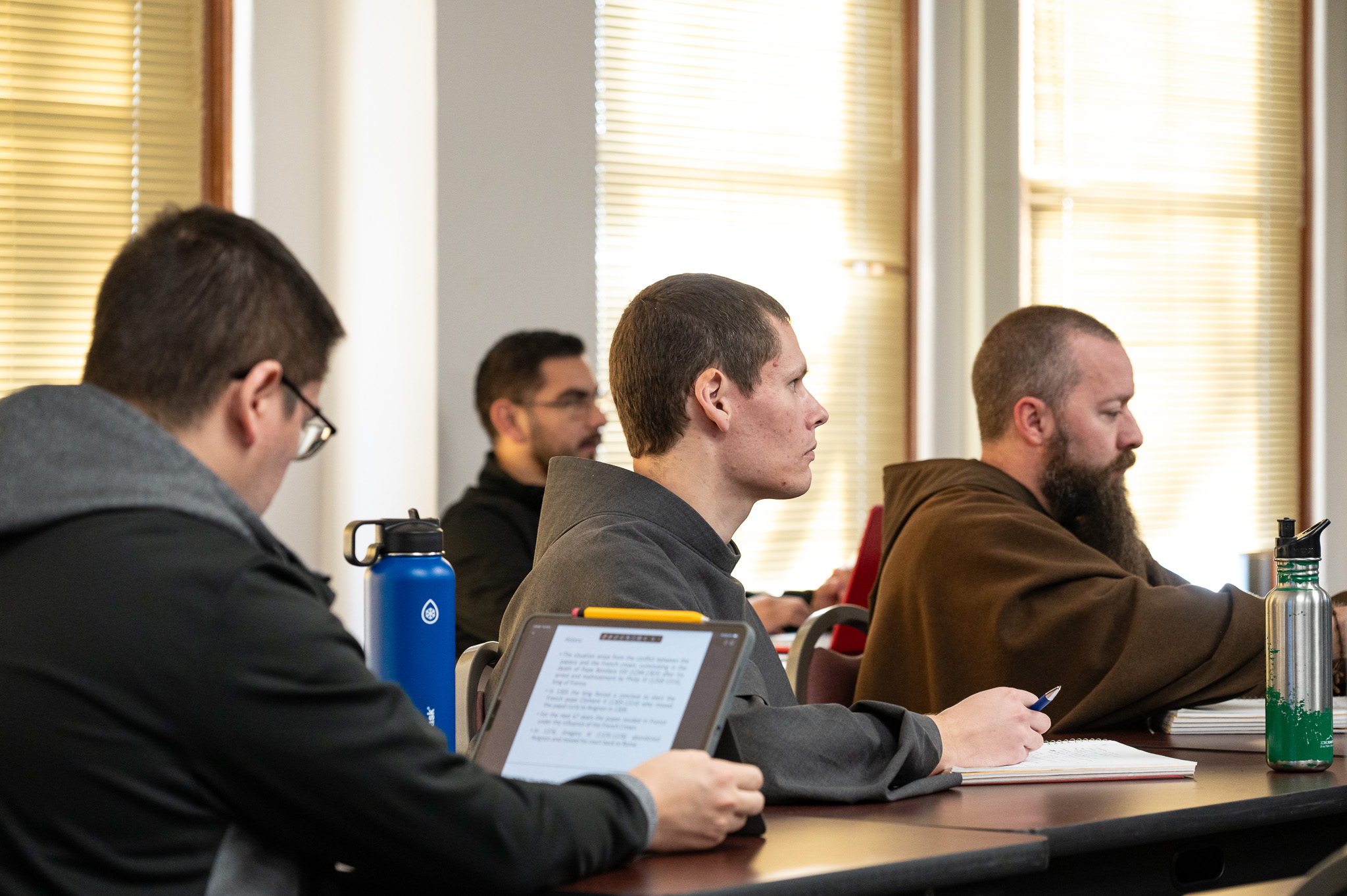

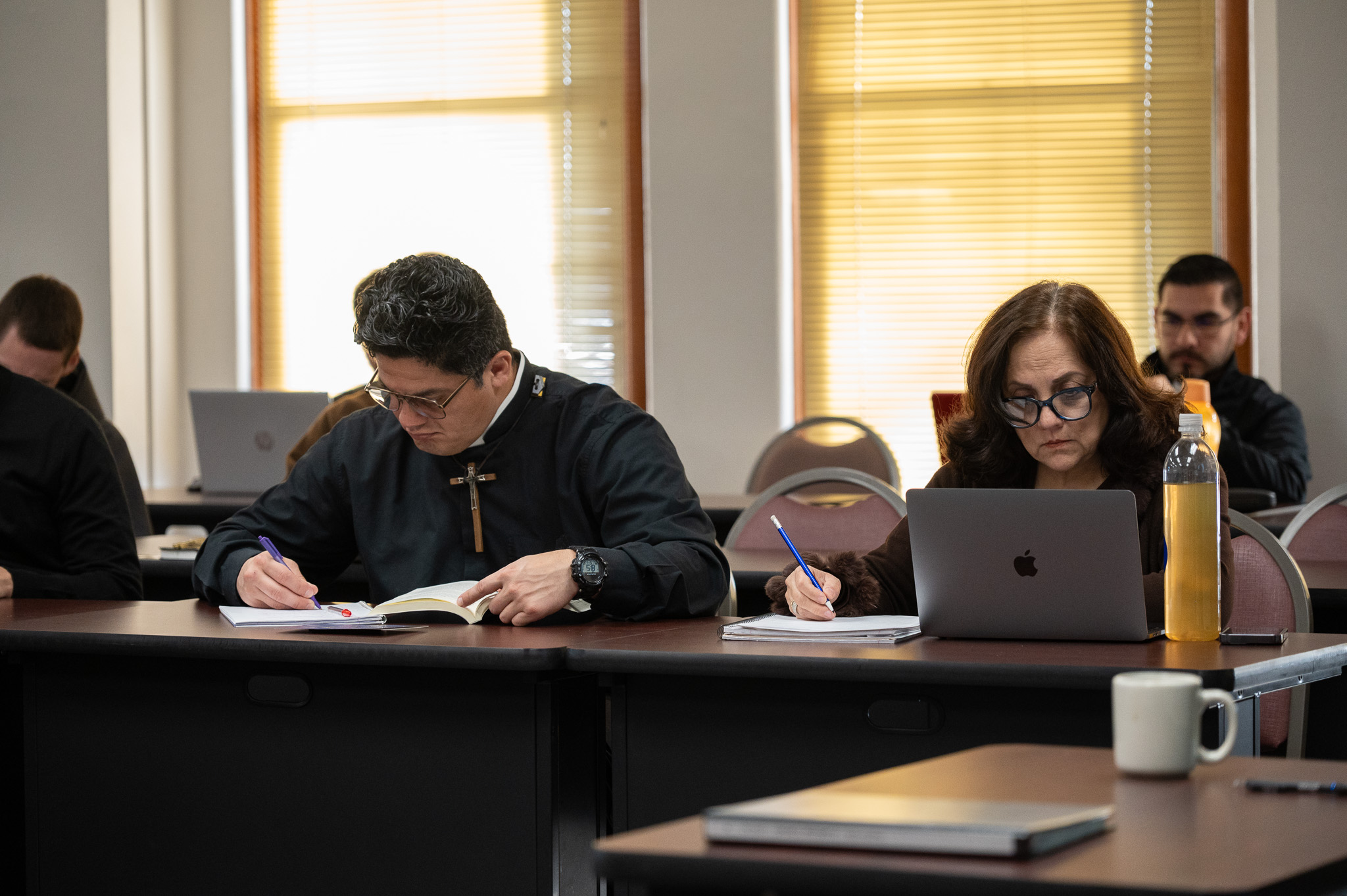
The Master of Divinity degree is the first professional degree and is designed to provide a solid foundation in the various theological disciplines and in the development of ministerial skills in order to prepare candidates for ordained ministry and qualified laity for effective ministry in the Church. The degree prepares persons for pastoral ministry through academic study and supervised practice.
Application for Candidacy
MA in Sacred Scripture students will apply for candidacy to the degree after successfully completing 12 graduate credits in required courses at OST. The Admission Committee, after consultation with the faculty, will decide on the applications for candidacy. Admission to candidacy is the faculty’s attestation that the student has demonstrated capacities to fulfill all the objectives for the degree and to complete the degree requirements.
The Master of Divinity degree is the first professional degree and is designed to provide a solid foundation in the various theological disciplines and in the development of ministerial skills in order to prepare candidates for ordained ministry and qualified laity for effective ministry in the Church. The degree prepares persons for pastoral ministry through academic study and supervised practice.
Preparation of candidates for presbyteral or other full-time professional ministry through academic study and supervised practice.
Upon completion the student will be able:
- To interpret in an ecclesially and critically responsible way the Hebrew/Christian Scriptures and theological tradition of the Christian community.
- To preach effectively within the Christian community.
- To lead liturgical worship in the Church.
- To provide pastoral care in various ministerial settings.
- To participate in the development of ministry in a collaborative style among men and women in a multicultural and religiously plural society, recognizing diverse gifts.
- To accept responsibility as a public representative of the Church working for the common good in society.
- To integrate theology, life experience, and pastoral practice.
Admissions Requirements
- See the catalog section on General Admission Requirements for Graduate Studies at Master’s Level.
- Master of Divinity applicants who are also candidates for presbyteral ordination in the Roman Catholic Church in the United States must have 30 credit hours in undergraduate philosophy and 12 credit hours in undergraduate theology/religious studies as required by the U.S. Bishops’ Program of Priestly Formation.
- In addition to the specified undergraduate requirements of History and Method of Christian Thought and Reading the Bible or their equivalents, applicants must have demonstrated skill and knowledge levels in the area of public speaking. If unable to demonstrate this competency, an additional undergraduate course, Rhetoric and Proclamation, is taken.
Degree Requirements
- As a Roman Catholic school of theology, OST makes special reference to the requirements of the Program of Priestly Formation of the United States Conference of Catholic Bishops in designing the M.Div. degree.
- The candidate for the M.Div. degree must complete 80 credit hours of graduate course work, normally 74 required hours and 6 hours of electives. Candidates for the Roman Catholic priesthood will complete the 80-credit M.Div. plus 26 credits for the Certificate in Advanced Studies for Presbyteral Ministry for a total of 106 hours. Eight of those 106 hours are electives.
- Transfer credits. Normally, graduate credits earned more than ten years prior to admission will not be transferred. The student’s program director reviews the documentation and makes the necessary decision regarding credit and course equivalencies. The School stipulates the maximum hours acceptable in transfer according to ATS Standards. The student is normally responsible for submitting catalogs, syllabi, and course descriptions related to documentation for equivalencies and transfer of credit. Normally, grades of “C” or better are accepted for undergraduate credit. Grades of “B” or better are normally accepted for graduate credit. Transferred grades do not count toward the OST GPA. Students with appropriate undergraduate course work may challenge 6000-level core courses.
- No more than four elective hours will be accepted in transfer. Students entering OST for the first year of the M.Div. program may not transfer in elective hours. Students entering OST for the second year of the M.Div. program may transfer in two elective hours. Elective hours taken elsewhere after a student has enrolled at OST are at the discretion of the student’s academic advisor. This also applies to courses credited through OST but taught elsewhere. Students must obtain prior written permission from their academic advisor by completing the Request to Take Courses from Another Institution to Be Transferred to OST form before attending the course(s). No more than two hours will be accepted in transfer from the Creighton Summer Institute for Priestly Formation.
- Students must complete at least two years of full-time study at OST. The degree program must be completed within seven years after matriculation.
- All students for the M.Div. degree must maintain, and have at the completion of the requirements for the conferral of the degree, a minimum grade point average of 2.5 for graduate work. Low grades, indifference, or neglect of work during any semester may place a student on academic probation.
- In the area of spiritual formation and ministerial leadership, a candidate must show evidence of characteristics that befit a professional minister of the Church.
- Students apply for candidacy after successfully completing 27 semester hours of core graduate courses and fulfilling the language requirements at OST
This optional certificate is for students who demonstrate at least an intermediate ability to converse, celebrate the liturgy, and preach in both Spanish- and English-speaking contexts. The program is intended for those who are already bilingual and those who are seeking to become so.
Interested students are encouraged to enroll at the beginning of their M.Div. studies, and no later than the beginning of their second year. Upon enrollment they participate in an initial oral assessment of their language ability. If they are lacking intermediate oral fluency in either idiom, they and/or their sponsoring organization arrange for the needed study through tutors, language institutes, or courses at OST if warranted by sufficient student interest. A qualifying evaluation of intermediate oral fluency is given at the end of the Fall semester of the third year of theology. OST coursework and supervised ministry provide opportunities to employ these languages in ministry studies and contexts. Integration is achieved through special requirements in certain specified ministry courses – especially in the liturgical and preaching areas – and in Field Ministry placements, and demonstrated in the final M.Div. qualifying project in the Integration of Theological Studies seminar (see Final Qualifying Project below).
Historical and Cultural Studies (3 credit hours)
CH 6311 Church History II: Holy Roman Empire to the Present
Scriptural Studies (14 credit hours)
SS 6200 Scriptural Hermeneutics
SS 7311 The Torah
SS 7331 Synoptic Gospels
Two of the following:
SS 7312 Prophetic and Historical Literature of the Old Testament
SS 7333 Johannine Literature
SS 7336 Pauline Literature
Theological Studies (36/37 credit hours)
Systematic
TS 6301 Theology of Revelation and Faith (Revelación y fe)
TS 6305 Introduction to Missiology: Culture and Religion
TS 7313 Christian Anthropology: Humanity Transformed in Christ
TS 7311 Christology: Jesus Christ and Human Redemption
TS 7314 God in the Christian Tradition
TS 7315 Theology of Church and Ministry
Sacramental
TS 7333 Liturgy & Theology of Eucharist
Two of the following:
TS 7331 Liturgy & Theology of Christian Initiation
TS 7335 Christian Marriage: Theological & Canonical Aspects
TS 7232 Liturgy & Theology of Sacraments of Healing
Moral and Spiritual
TS 6260 Introduction to Christian Spirituality
TS 6350 Foundations of Moral Theology
TS 7350 Catholic Social Thought
Interdisciplinary Studies
TS 8196/8197 Integration of Theological Studies
Pastoral Studies (20 credit hours)
PS 6192/6193 Orientation to Supervised Ministry (1 cr. hr. total)
PS 6350 Basic Pastoral Care
PS 7340 Evangelization and Faith Formation
PS 7320 Church Law
PS 7334 Introductory Preaching
PS 7351 Pastoral Counseling
PS 9195/9295 Theological Field Education (3 cr. hrs.)
PS 6177-7180 Pastoral Formation Seminar I-IV (1 cr. hr. total). Replaced by another year of TFE for presbyteral candidates.
Total Required Courses: 74/73 credit hours Electives: 6/7 credit hours
This certification is earned by presbyteral candidates who have completed the 80-hour M.Div. curriculum and 26 additional credit hours required by the Program of Priestly Formation. Those additional requirements include:
Historical and Cultural Studies (5 credit hours)
CH 6310 Church History I: The Patristic Era
CH 7220 U.S. Religious History or CH 7235 U.S. Hispanic/Latina Christianity
Scriptural Studies (3 credit hours) The remaining Scripture course in the M.Div. requirements
Theological Studies (11/10 credit hours)
TS 7296 Theology of Ministerial Priesthood
TS 7252 Theology of Human Sexuality
TS 7253 Bioethics / Healthcare Ethics
TS 72__ Patristic elective
The remaining Sacramental course (3 or 2 credits)
Pastoral Studies (7 credit hours)
PS 7235 Liturgical Preaching
PS 9196/9296 Theological Field Education
PS 8100/8101 Practicum in Presidential Leadership at Liturgy
Electives (1 credit hour if 7 done for the M.Div./2 credit hours if 6 done for the M.Div.)
* actually 27 credits, since 1 credit replaces the Pastoral Formation Seminar in the 80-credit M.Div. program
The M.Div. program at OST offers a very strong supervised ministry program. An initial year of Orientation to Supervised Ministry provides instruction in the elements of supervised ministry in the first semester and a field placement in the second semester that includes on-site supervision and peer pastoral-reflection groups through OST.
Two years of Theological Field Education provide field education placements with on-site supervision and peer pastoral-reflection groups through OST.
Clinical Pastoral Education is highly recommended following the first year of Theological Field Education (that is, after the second year of studies), but it is not required nor given credit toward the degree.
Ministerial Internship (or Pastoral Year)
Academic preparation and limited concurrent field education experiences provide a basic introduction to the pastoral ministry of the Church. Internship provides full-time involvement as a recognized member of a pastoral team, usually in a parish situation. OST offers a non-obligatory but strongly recommended Internship program. The Internship Program normally follows the completion of three years of studies and is of nine-months duration, after which the intern returns to complete the academic requirements for the M.Div. degree. As non-obligatory, the twelve (12) credit hours earned are recorded on the academic transcript but are not applied toward the degree. Structural components of the program include a pastoral placement which ensures a wide range of ministerial experiences, a field instructor who is trained in pastoral supervision, and a lay committee representative of the parish community. Internship is an intentional educational process structured to achieve the human and faith maturation of the person, while seeking to develop competence in pastoral skills through theological reflection in the actual practice of ministry.
Certain dioceses opt to have their seminarians do a Pastoral Year after their second year of graduate theology, rather than the Internship. In such cases OST offers a Pastoral Year with modified ministerial experiences in view of the lesser preparation for ministry. Otherwise the basic structure of the program remains the same.
Integration of Theological Studies is the final qualifying project for M.Div. degree candidates. It is a seminar devoted to sharing and revising selected examples of their previous professional work during the program. The two-semester process begins in the fall semester of the final full year of the candidate’s M.Div. program, and culminates in the spring semester with an individual synthesis conversation with a faculty panel.
Sponsored by over forty graduate theological schools, including OST, this ecumenical program held for two weeks in June every summer at rotating institutions provides elective courses with a Hispanic/Latina awareness in the various fields of theology. The courses are taught by Latine theologians for Latine students and a limited number of non-Latines preparing for Hispanic ministry. It is an excellent (and very inexpensive) opportunity for developing sensitivity in Latine ecumenical relations. Applications are made directly to the Hispanic Summer Program administrators in the early Fall preceding the program the following summer.
The M.A./M.Div. dual degrees are tailored to students who demonstrate exceptional capacity for research during their Master of Divinity (M.Div.) program. Candidates for the M.Div. who hold a bachelor’s degree may also apply for the M.A. (Theology) program. (Students enrolled in the C.P.S., Certificate of Pastoral Studies, may not apply for the dual degree.) They must fulfill all of the requirements for the M.A. (Theology) degree (see the section for that degree in this catalog). The total hours for the two degrees equal 96 graduate credit hours. Seminarians take additional credit hours to satisfy all the requirements of the Program for Priestly Formation.
Students may apply 20 credit hours from the Master of Divinity toward the Master of Arts (Theology) degree. Those 20 credit hours are all of the core courses for the M.A. (Theology) degree except for the 1 credit M.A. Pro Seminar. The other 16 credit hours are the M.A. Pro Seminar, the 2 credit Thesis Proposal, the 4 credit Research Thesis, and 9 elective graduate credits in courses taken at OST that are not for another degree. 6 of these elective credits can be used for a concentration in one of the following areas if the thesis is also written in the same area: Cultural and Historical Studies, Scriptural Studies, Systematic Theology, Moral Theology, Sacramental Theology, or Spirituality. Ministry skills-based courses such as Pastoral Care, Preaching, or Theological Field Education cannot be used to fulfill the requirements of the M.A. (Theology). The 9 elective credits can be covered for seminarians by the additional credits beyond the M.Div. degree that are required by the Program of Priestly Formation.
A minimum overall grade point average of 3.25 is required in both degree programs to remain in the dual degree program. A student should matriculate for the dual track after having completed 24 credits in the M.Div. program (at least 12 of which must be in courses taken at OST other than in Pastoral Studies) and before having completed 50 credits in the M.Div. program. Candidates are strongly advised to complete their M.A. thesis during the second-last year of their M.Div. Program (i.e. during Year III Theology). The M.A. Theology dual program must normally be completed within six years after matriculation.
Candidates who successfully complete all the requirements for the Master of Divinity degree and the Certificate in Advanced Studies for Priestly Ministry with a GPA of 3.0 are eligible for the S.T.B. degree, through an affiliation with St. Paul University in Ottawa. They may apply for the degree after their second year of graduate theology. They prepare for a comprehensive written and oral examination at the end of their M.Div./CASPM program by studying a list of themes made available to them when they apply for the degree.
Master of Divinity
For More Information:
Registrar’s Office
Brenda Reyna, Registrar 210.341.1366 ext. 226
Victoria Rodriguez, Associate Registrar
210.341.1366 ext. 240



